| "Get away from the negative and understand there is a problem and we have to address it and we're going to address it together as a nation." - Houston Police Chief Troy Finner on the push for police reform across the country
Welcome to "Face the Nation"'s Five at Five newsletter. Scroll down for your five takeaways from today's broadcast of "Face the Nation" with Margaret Brennan on CBS. Did someone forward you this? Sign-up at cbsnews.com/email. 1. Demings on Ma'Khia Bryant shooting: Officer "responded as he was trained to do" 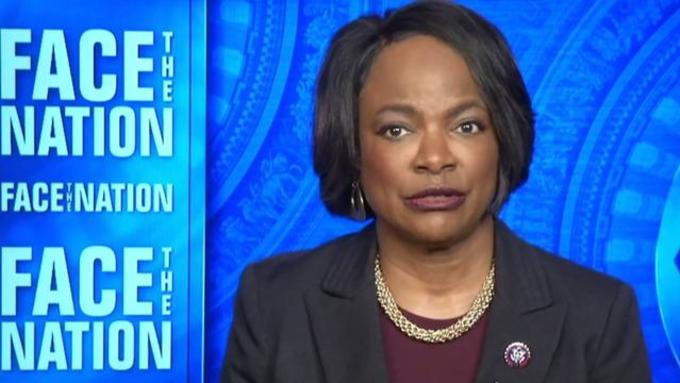 Congresswoman Val Demings, a Democrat from Florida and former chief of the Orlando Police Department, said Sunday the police officer who fatally shot 16-year-old Ma'Khia Bryant in Ohio last week appears to have responded in accordance with his training. What Demings said: "Everybody has the benefit of slowing the video down and seizing the perfect moment. The officer on the street does not have that ability. He or she has to make those split-second decisions and they're tough. But the limited information that I know in viewing the video, it appears that the officer responded as he was trained to do with the main thought of preventing a tragedy and a loss of life of the person who was about to be assaulted." Why it matters: Bryant, 16, was shot and killed by police officer Nicholas Reardon in Columbus, Ohio, on Tuesday after he responded to 911 calls requesting law enforcement assistance. In body camera footage released to the public, Reardon is seen firing four shots at Bryant as she swung a knife at another young woman pressed against the side of a parked car. The shooting in Columbus occurred just before a Minneapolis jury rendered its guilty verdict against police officer Derek Chauvin in the killing of George Floyd. 2. DeWine says there's a clear pathway to police reforms 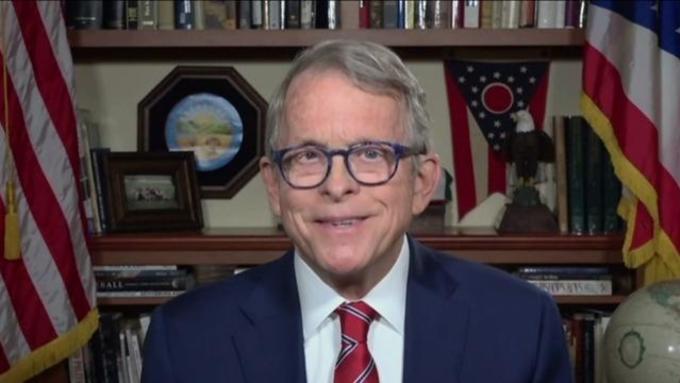 Ohio Governor Mike DeWine said Sunday he sees a "clear pathway" for police reforms following the fatal shooting of teenager Ma'Khia Bryant by a police officer in Columbus, Ohio, last week. What DeWine said: "I think there's a clear pathway in regard to police reform. I think there are things that we all can come together on, Democrat or Republican, liberal or conservative." Why it matters: DeWine, a Republican, said there is much to learn from Bryant's death last week and said his administration has put legislation before the state legislature that calls for more police training and funding for body cameras for officers. 3. Policing in America: Houston PD chief says "no one is above the law" 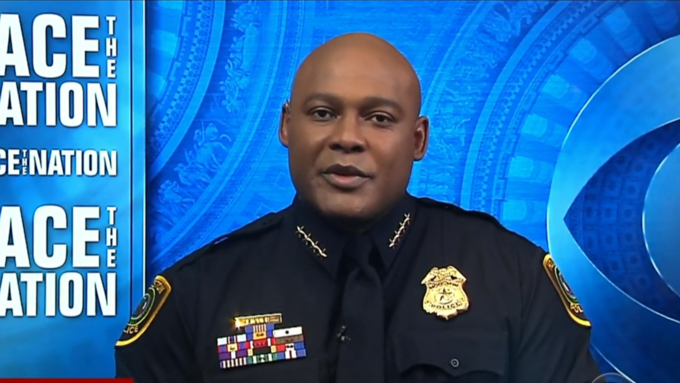 Houston police chief Troy Finner said Sunday that the guilty verdict in the Derek Chauvin trial sent a message to everyone -- including police officers -- that "no one is above the law." What we asked: What was the reaction within the force about the verdict in the Derek Chauvin case? What Finner said: "It's a message that no one is above the law and it's a message to everybody in our nation, including our citizens, that, you know what, everyone is going to be held accountable." Why it matters: Chauvin, a former Minneapolis police officer, was convicted Tuesday of murdering George Floyd, who was originally from Houston, in May 2020. Finner encouraged police officers not to get "caught up in the negative noise" surrounding the profession, but instead to slow down and make efforts to better understand the people and communities they are protecting in order to foster a better relationship. 4. Have a little hope: Gottlieb says take COVID decline 'to the bank 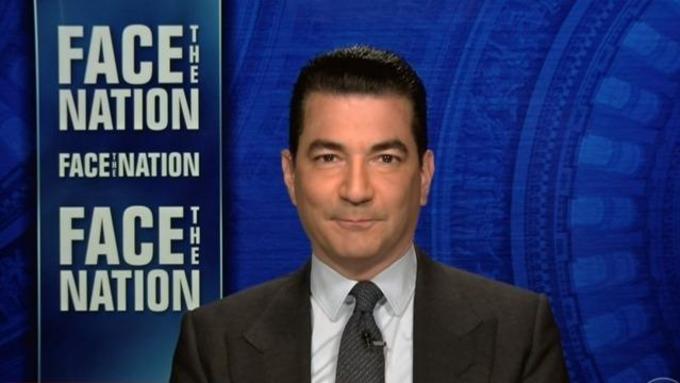 Dr. Scott Gottlieb, former head of the Food and Drug Administration, said Sunday the drop in new coronavirus infections across the nation is a "hopeful trend," and Americans can take the declines in new cases "to the bank" as they're being driven by growing vaccination rates and high levels of immunity among the U.S. population. What Gottlieb said: "Whereas the past trends when we saw cases start to decline, we were somewhat skeptical because we knew a lot of those declines were a result of behavioral changes, people pulling back more, taking more precautions. And then as soon as we sort of let our guard down, we saw cases surge again. Right now, the declines that we're seeing, we can take to the bank." Why it matters: Gottlieb said cases and hospitalizations are declining nationwide, including in states like Michigan, which was battling a surge in infections. "I think that these declines we're seeing are really locked in at this point," he said. "So I don't think we need to be as worried that as we take our foot off the brake, things are going to surge again." There have been more than 31.7 million confirmed coronavirus cases, though the nation this week saw a 10% drop in average cases from the past week, federal health officials said Friday. 5. Ifill: "People are fed up, and that's a good thing" 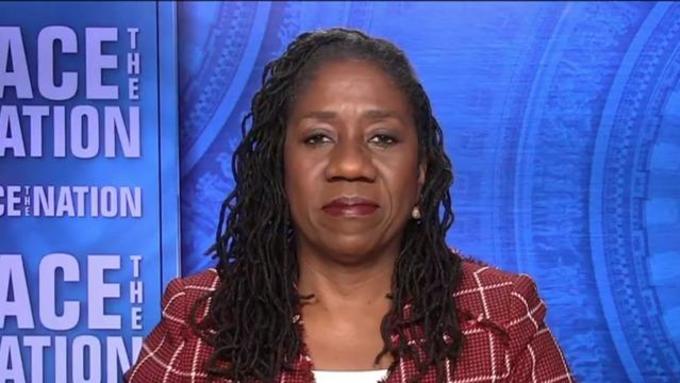 President and director-counsel of the NAACP Legal Defense and Educational Fund, Sherrilyn Ifill, shared her insights on the state of policing in America in the wake of the Chauvin trial and numerous officer-involved shootings of predominantly Black and brown Americans in the U.S. What we asked: With the conviction this week, what you think changed and what you think did not change? What Ifill said: "People are fed up and that's a good thing because it's time for a fundamental change. If you can recall, we've been in these conversations for the last seven years since Mike Brown was killed in Ferguson, Missouri. And there's been some tinkering around the edges. There's been some movement. The most powerful movement has been that the conversation has shifted away from talking about tinkering around the edges and modest reforms to radical changes and a radical envisioning of what public safety needs to become in this country." Why it matters: As Ifill noted, in the wake of numerous tragedies nationwide, there's now momentum, political and police-focused, behind "a radical envisioning of what public safety needs to become" in the U.S.
|
No comments:
Post a Comment